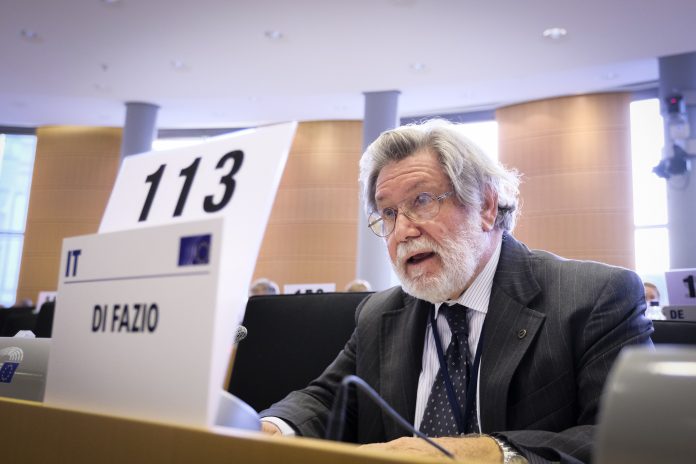Tommaso Di Fazio, Member of the European Economic and Social Committee, explains why completing the European energy market must be a top priority for the future of Europe
In the opinion that I recently put together and that was adopted at the October 2019 plenary session, the European Economic and Social Committee (EESC) threw its support behind the European Commission’s Communication on the National Energy and Climate Plans (NECPs) presented in June 2019.
In the EESC’s view, top of the list of recommendations – for the European institutions themselves as well as for the Member States – should be completing the European energy market. This is still not fully linked up, interoperable and transparent, and has marked differences in gas and electricity prices due either to the energy component or to grid and distribution fees and taxes.
The fact that energy prices still differ widely across the European Union (EU) is symptomatic of serious shortcomings in the single market and if the appropriate corrective measures are not taken, could undermine our chances of achieving the 2030 Energy Union objective.
For this reason, we call on the Commission and the Member States to make sure that the NECPs include commitments to fully implement the legislation and to carry out frequent checks to ensure that it has been done properly, in the interests of both businesses and consumers.
These commitments should be part of a renewed strategy to complete the single market by 2025, one that is capable of tackling the global challenges of sustainable competitive growth and climate in a modern environment, which is smart, digitalised and interconnected across the entire continent.
An energy transition with a human face
The EESC also stresses that success in implementing the plans will depend on how much buy-in they have from the population at large through a bottom-up process of involvement.
The new energy system needs to be more inclusive, sustainable, cost-effective, fair and safe. To this end, the Committee thinks the NECPs should include a human-centric approach to the energy transition, in which decisions on global energy and climate challenges are based on social consensus, while at the same time creating value for businesses and society.
On no account should this put at risk the energy triangle of security and access, environmental and social sustainability, and economic development and competitive growth.
In this respect, we recommend particular attention be given to responses to the problems that will arise in the implementation of the plans, especially where the pursuit of the clean energy objective will involve restructuring or even the closure of entire sectors of production.
More specifically, we ask the Commission to set out in the plans themselves the arrangements for the relocation of workers. This is a focal point in the transition period to avoid “anybody being left alone.”
Nurturing a culture of sustainability
Europe has no future unless it develops a culture of sustainability, one that can support the energy transition and climate neutrality and get all sections of society consciously and proactively involved. No one country can address climate change alone, but by working together, at all levels, we can make a big difference.
Awareness-raising, especially from an early age, is essential. People need to share a belief in the importance of sustainability and to behave accordingly. This is why the EESC recommends that NECPs include initiatives to nurture a widespread culture of sustainability – with appropriate resources and funding built-in. A sustainability mindset needs to be fostered through measures widely disseminated in education and training systems, from childhood on.
A vigorous information and communication campaign also needs to be mounted, for example by capitalising on the network of national economic and social councils.
This means a key role for civil society organisations.
A new multilevel governance model
The European Commission is now launching an assessment of the draft NECPs submitted by the Member States and is following a new governance model for their implementation: a multilevel interactive dialogue fully involving Member States, regional and local authorities, organised civil society, and public and private entities at the local and regional level. The aim is to ensure convergence and consistency of action at European level for the transition to clean energy and climate protection.
In doing this, the EU is becoming a legislative and governance benchmark for the entire planet in the fight against climate change. By endorsing specific “integrated” NECPs, the European Union is making itself the first major global economy to adopt a legally binding framework to deliver on its 2015 commitments under the COP21 Paris Agreement and the UN 2030 Agenda.
These plans represent the action that Europe is taking, as the first in the world, in response to the movements against no action of politicians for climate change. It is not true that we are not doing anything. We are working hard, and the NECPs are the reality of the actions planned, but we need to keep these issues at the top of the agenda and not let them drop out of the spotlight.
As civil society representatives, we must take the lead in implementing these operational plans that the Commission is putting together for the first time. This is a new model of governance, the beginning of an ambitious project of mutual help between those involved. No individual can solve these issues alone, but all together we can make a difference. We need to be as active as possible. Let’s get to work.











